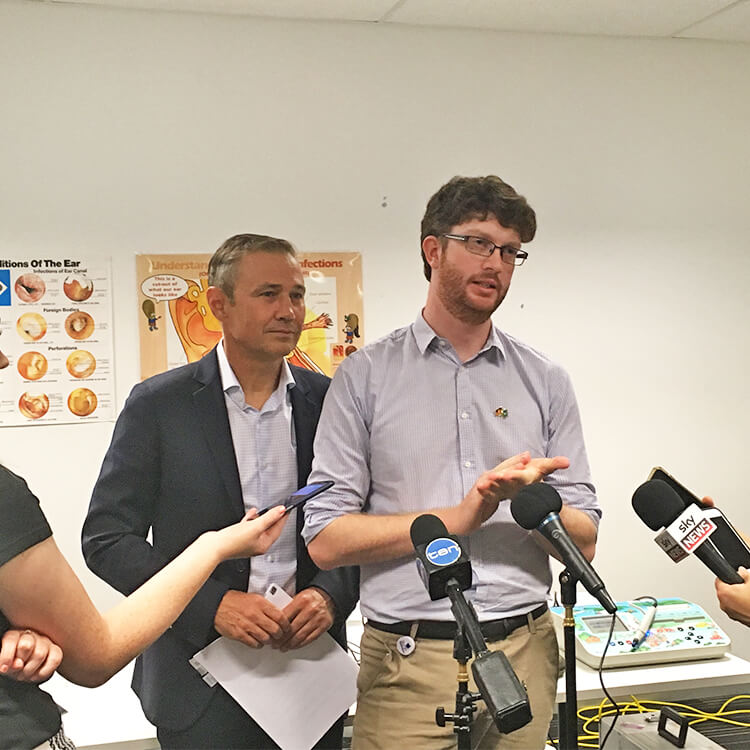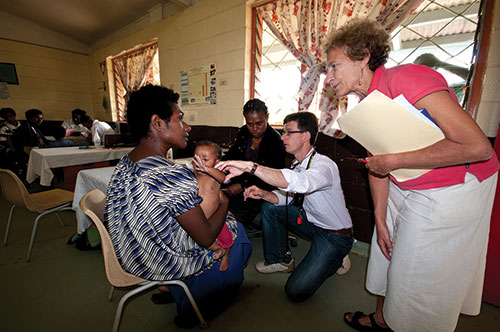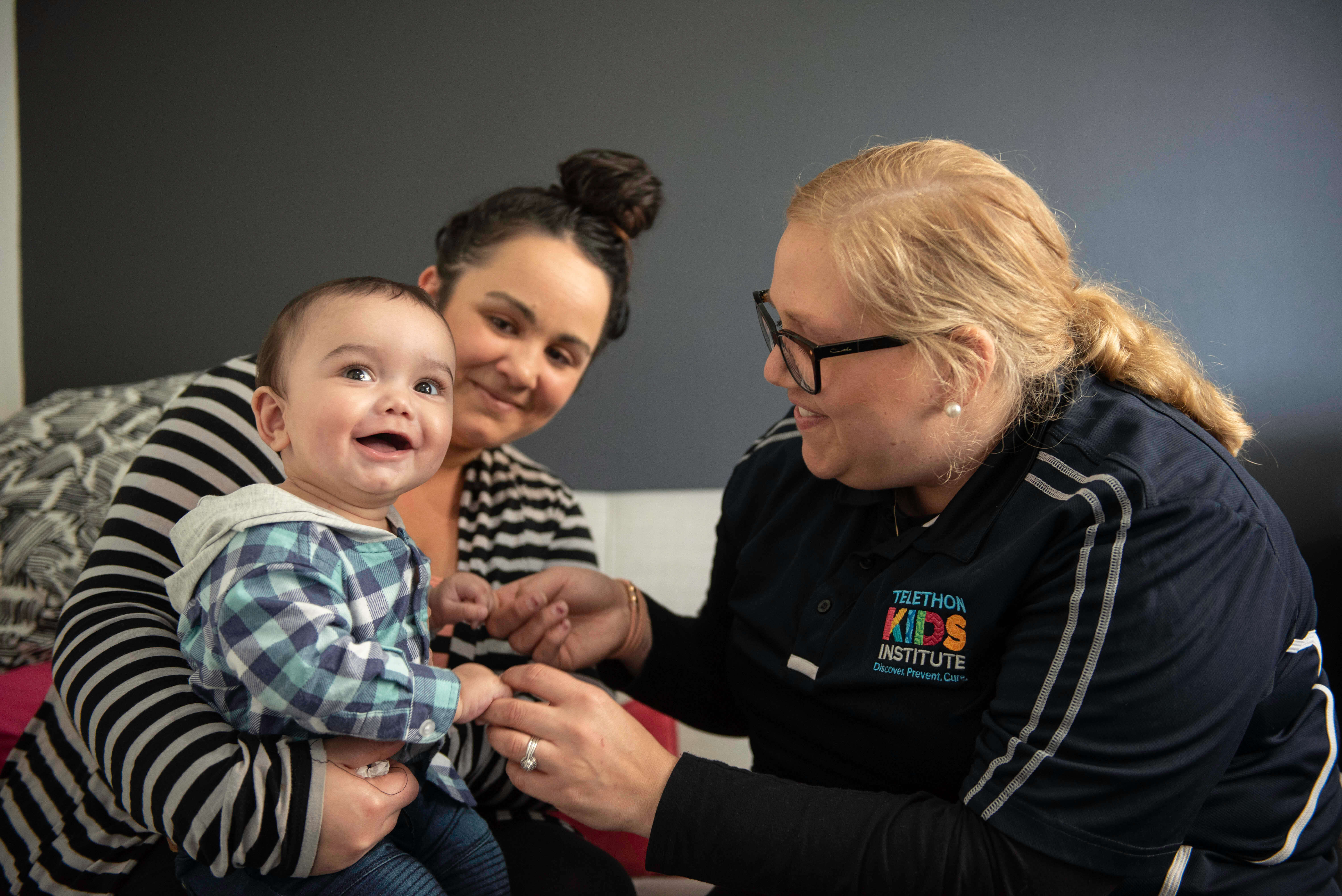Search
Globally, ARF and RHD cause more than a quarter of a million deaths and substantial disability each year.
Neisseria meningitidis is a leading cause of meningitis and septicaemia, but a broadly-protective vaccine against endemic serogroup B disease is not licensed...
With advancing paediatric healthcare, the use of central venous lines has become a fundamental part of management of neonates and children.
Streptococcus pyogenes is commonly believed to be resistant to trimethoprim-sulfamethoxazole (SXT), resulting in reservations about using SXT for skin and...
Despite the need for effective vancomycin therapy, there are few data guiding vancomycin monitoring in children. We reviewed retrospectively vancomycin use...

A new study has confirmed the changing pattern of meningococcal disease in Western Australia.

Wait times for Aboriginal children suffering ear infections could be reduced to less than four weeks thanks to a new The Kids Research Institute Australia research project

In a WA first, researchers from The Kids Research Institute Australia have shown that Aboriginal babies are 22.5 times more likely to be treated for skin infections than non-Aboriginal babies.

Clinical Associate Professor Deborah Lehmann has been recognised for her dedication to reducing the burden of infectious diseases in Papua New Guinea (PNG) with an award supporting research in the Western Pacific named in her honour.

The major funder of the Wesfarmers Centre of Vaccines and Infectious Diseases based at The Kids Research Institute Australia has been recognised as Australia’s most generous giver.
